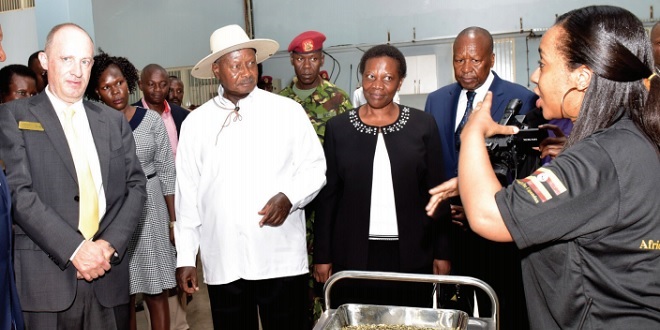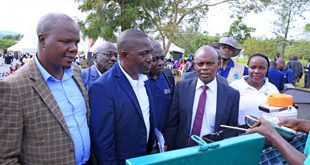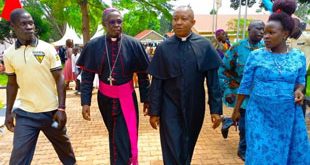
Kampala, Uganda | THE INDEPENDENT | The private sector in Uganda views the statement on sanctions made by the West against Uganda as a barrier that will be overcome.
The latest statements came from the US government in form of an advisory to its business people doing business in Uganda, who might face penal consequences from Washington, over dealing with a country characterised by human rights violations and corruption.
It comes just over two months after the World Bank announced a stop on future loans and advances to Uganda following the enactment of the Anti-Homosexuality Act.
The U.S. Departments of State, Labor, Health and Human Services, and Commerce, and the U.S. Agency for International Development, (USAID) of Monday issued a joint advisory to inform U.S. businesses, individuals and organisations of “potential risks if conducting or contemplating conducting business in Uganda”.
It warned that these “should be aware of potential financial and reputational risks resulting from endemic corruption…as well as violence against human rights activists, media members, health workers, members of minority groups, LGBTQI+ persons, and political opponents”.
This is, in effect, aims at cautioning investors and other persons from dealing with Uganda, a move, if implemented and respected by the American people and organisations, would suffocating investment flows from the US.
Uganda’s extractives industry is one of those greatly in need of capital, foreign capital, with exploration activities are development phases going on.
Richard Kaijuka, the chairman Uganda Chamber of Mines and Petroleum says most investments take long enough to outlive the situation that the country is going through and that these will ebb by the time the investments mature. He expects that long term current and prospective investors will not be swayed by the statements.
However, Kaijuka says that they have always advised the government to mind the country’s human rights record because it contributed to the quality of the business or investment climate.
Uganda’s goods exports to the US Uganda totaled 174 million dollars in 2022, up 89.1 percent from 2021, and up 405 percent from 2012, according to the US Trade Representative.
On the other hand, U.S. goods exports to Uganda in 2022 were 167 million dollars, down 0.3 percent from 2021 but up 67 percent from 2012. So, Uganda’s trade balance with the US shifted from a goods trade deficit of 75 million dollars in 2021 to a surplus of 7 million in 2022.
U.S. foreign direct investment (FDI) in Uganda was 104 million dollars in 2022, a 13.0 percent increase from 2021.
The 2023 Investment Climate Statement warns investors about risks related to endemic corruption and the lack of respect for human rights in Uganda, according to the advisory.
Also, the 2022 Country Report on Human Rights Practices in Uganda provides additional detail regarding restrictions by the Government on an independent legislature and the lack of commitment to fair trial guarantees, as well as “elite capture of critical institutions,” including the military and police.
“These actions may become more frequent in the lead up to the 2026 elections; similar patterns of violence and disregard for the rule of law occurred ahead of the 2021 and 2016 electoral processes,” the Advisory says.
Addressing the 4th National Youth Entrepreneurship Forum and Expo Tuesday, President Yoweri Kaguta Museveni repeated his stance against what he calls interference in Ugandans affairs by foreigners.
He says the West should stop lecturing him about how to handle human rights and homosexuals because he knows how to deal with them.
In August, following the statement by the World Bank that it was halting future loans to Uganda, Museveni said Uganda would survive without aid, adding that in any case, many of the loans given to the country were not called for.
“I would like to reiterate that foreign aid and loans are welcome and can be of some use if designed and executed by patriots (not neo-colonial agents), but are neither decisive nor indispensable elements for our desired social-economic transformation,” he said then in one of his two written statements to the public, adding that the aid could actually have negative effects 9n the recipient country.
“On the contrary, those loans and aid packages, can be a source of distortion and stunted growth as you can see across Africa. If foreign aid and loans, are a source of social-economic transformation, why the present growing crisis of even security and stability in Africa?”
***
URN
 The Independent Uganda: You get the Truth we Pay the Price
The Independent Uganda: You get the Truth we Pay the Price


